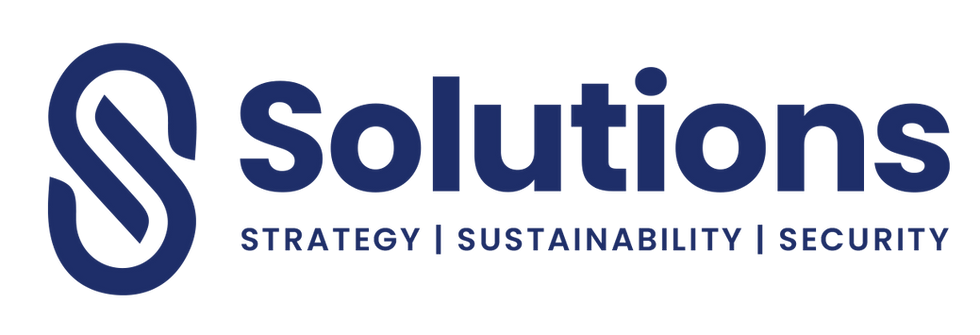Artificial Intelligence and the Dopamine Paradox: Opportunities and Risks of a Cognitive Revolution
- Sergio Bonuomo

- Oct 19, 2025
- 4 min read
In the contemporary technological landscape, artificial intelligence is redefining not only the way we work, but above all the way we think, learn, and relate to knowledge . An in-depth analysis of this phenomenon reveals a fascinating and troubling paradox : the same tool that promises to amplify our cognitive abilities risks triggering neurobiological mechanisms that could erode them.

When the Brain Seeks the Easy Way
To understand the profound impact of AI on our cognition, we must start with a fundamental biological mechanism: the reward circuit . This system, governed by dopamine, is the evolutionary engine that guides us toward what is beneficial and away from what is harmful.
The human brain is programmed to reward anything that reduces cognitive effort with a dopamine rush. When we eat something pleasant, when we receive a hug, when we achieve success, our nervous system rewards us chemically, telling us: "This is the right direction; seek this experience again."
But what happens when artificial intelligence enters this delicate balance?

Artificial intelligence presents itself as the perfect activator of the reward circuit . Consider an everyday scenario: a student struggling with a complex math problem, or having to write a lengthy essay. The cognitive effort required is high, performance anxiety looms, and the brain perceives this fatigue as a sign of stress.
And now AI offers an immediate solution: ready answers, well-structured texts, crystal-clear explanations. The result? An excellent grade without the effort of learning. The brain gets its dose of dopamine, but not for overcoming a cognitive challenge—but for evading it.
The Undeniable Opportunities
It would be reductive and incorrect to demonize artificial intelligence. The opportunities it offers are concrete and significant:
Productivity Boost : AI can handle repetitive, time-consuming tasks, freeing up cognitive resources for higher-level creative and strategic activities.
Accessibility to knowledge : Can summarize and explain complex concepts in different ways, adapting to individual learning styles and democratizing access to knowledge.
Decision support : When analyzing large amounts of data, AI can identify patterns and correlations that would otherwise escape the human eye, improving the quality of strategic decisions.
Personalized learning : You can adapt training courses to the specific needs of each individual, optimizing learning times and effectiveness.
The Risks of Cognitive Dependence: The "Deprogramming" Phenomenon

Behind these opportunities lies a systemic risk that we cannot ignore: the progressive atrophy of our cognitive abilities . When the brain discovers that it can achieve excellent results effortlessly, it begins a process of "deprogramming." The implicit message becomes: "You don't need to struggle with math, use me. You don't need to elaborate your ideas; I'll give them to you ready-made." This mechanism is particularly insidious because it exploits our natural tendency to seek cognitive respite. In an era already characterized by mental overload, constant overthinking, and a lack of time for relaxation, AI presents itself as the perfect solution to give a tired nervous system a break.
The medium-term consequences? Artificial intelligence could contribute to the erosion of critical thinking.
The paradox is that AI is often better at explaining our own concepts than we are, as evidenced by the experience of those who have discovered automatically generated articles about themselves that are clearer and more complete than those they would have written themselves. But this apparent superiority belies a fundamental question: is knowledge without the effort of learning really knowledge?
What happens when we systematically delegate the processes of elaboration, synthesis, and creation to AI? We risk losing the very skills that make us human : the ability to deal with complexity, to tolerate uncertainty, to develop critical thinking through cognitive effort .
Towards a Conscious Balance
The key is neither to reject artificial intelligence nor to embrace it uncritically. The challenge is to develop a conscious approach that recognizes:
The difference between AI and human intelligence : Artificial intelligence is not human intelligence, and confusing the two means misunderstanding both. AI excels at pattern processing and synthesizing existing information, but human intelligence brings with it genuine creativity, intuition, empathy, and the ability to make sense of experience.
The value of cognitive effort : Learning effort isn't a bug to be fixed, but an essential feature of cognitive growth. It's through effort that we build lasting neural connections and develop transferable skills.
The importance of rest periods : In a hyperconnected world, we must distinguish between authentic rest—the kind that regenerates—and the illusion of rest offered by the passive consumption of digital content, even that generated by AI.
The strategic use of AI : Artificial intelligence should be a support tool, not a replacement for thought. It can help us verify, explore alternative perspectives, and overcome creative blocks—but not completely bypass the personal process of thought.

Preserving Humanity in the Age of Artificial Intelligence
The adoption of artificial intelligence represents one of the most significant revolutions of our time. But like any technological revolution, it brings with it both promise and danger. The real risk is not that AI becomes too intelligent, but that we become too dependent on its intelligence, atrophying our cognitive abilities in the process.
The challenge for organizations, educators, and individuals is to develop a mature relationship with this technology : to use it as an amplifier of our capabilities, not as a replacement; to support critical thinking, not as a convenient alternative.
Ultimately, we must remember that the brain, like a muscle, develops through use and effort . And while the dopamine of instant gratification may be seductive, it is the dopamine earned through the effort of authentic learning that builds resilient, creative, and truly intelligent minds.
Solutions Consulting is committed to supporting organizations in the informed and strategic adoption of emerging technologies, with a particular focus on the balance between technological innovation and human capital development.




Comments